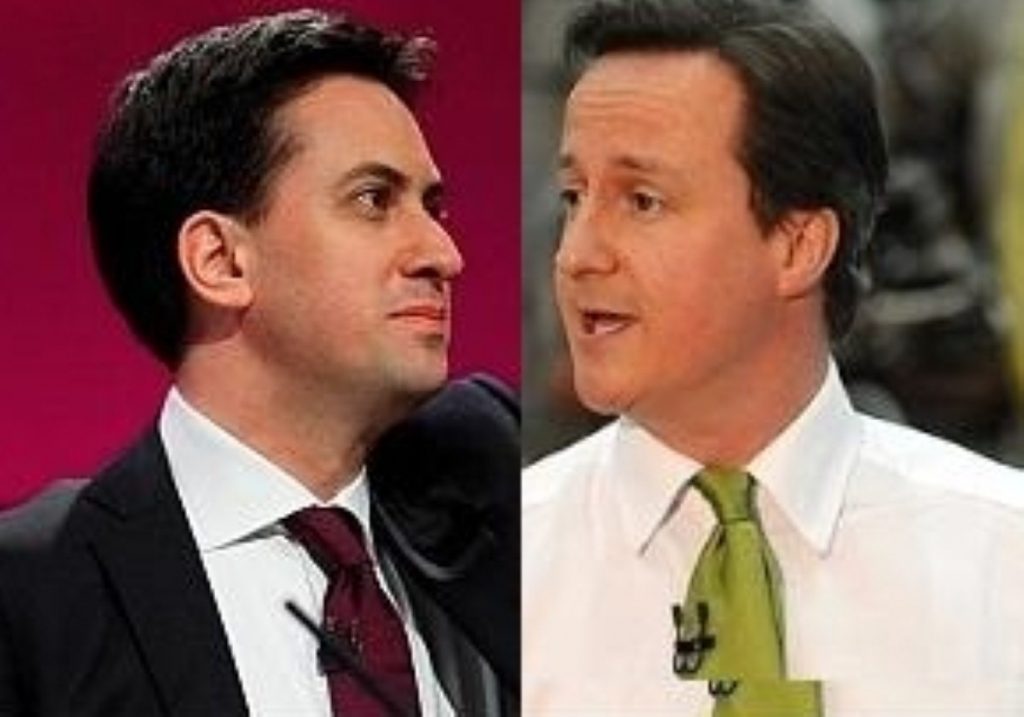PMQs sketch: Party interest wins out
Ed Miliband accused David Cameron of acting in the party rather than the national interest during today's prime minister's questions. But both leaders were guilty of exactly that – and MPs couldn't care less.
The urge to engage in political point-scoring is a fundamental part of any party leader's DNA. It is in their bones. They wake up in the morning muttering negative things about their rival. They can turn any conversation around in a moment to the relative weaknesses of their enemies. If a day passes when they have failed to get in a dig or two about their opponent, they fall asleep feeling restless and incomplete. Partisan warfare is a neverending struggle, a perpetual election campaign in the battle for public opinion. There are no let-ups.
The pressure on the two leaders to fight each other is at its peak in prime minister's questions, when the Commons turns into its weekly bearpit. Backbenchers like to work up an appetite for their lunch by braying at those opposite. It is a gladiatorial contest, but with much less blood. The credibility of both the prime minister and the leader of the opposition is at stake.
All this has forced David Cameron and Ed Miliband to unceremoniously abandon the marvellous opportunity prevented by the Libor banking scandal for politicians to unite together against a new enemy, the Bankers. A parliamentary inquiry could raise the status of the political world by showing MPs to be impartial truth-seekers. But Labour prefers a judge-led process to skewer the Tories as well as the bankers. As Miliband made clear in his opening question, a Leveson-style inquiry would, he explained, be "full", and "forensic", and "open".
Conservative ministers are itching to attack Ed Balls, the shadow chancellor, who was once the minister in charge of the City. Instead of viewing the inquiry as a 'truth and reconciliation committee', they're just viewing this as another opportunity for some political point-scoring. So Cameron, too, played politics. A parliamentary inquiry, he argued, would take place "as fast as possible". It would be wide-ranging, and could cope with the perils of a criminal investigation in a way a judge-led inquiry could not.
The prime minister was at his most preposterous when he declared that he was perfectly happy to accept the results of votes taking place tomorrow on the two options. The will of the Commons can be significant when party leaders take the shackles off backbenchers, allowing them a free vote. Tomorrow's divisions will be whipped, meaning the result is a guaranteed government victory. Ed Miliband was forced to give his celebrated impression of a stuffed chicken as Cameron bullied him about not accepting the Commons' will. "They don't want their dirty washing done in public!" the PM hissed.
For once, MPs on both sides were right to be sceptical. But they were not interested in the relative merits of the situation. Instead they were urging their leaders on to do in the other party. Cameron merely had to say the words "13 years in government" for the Tories to erupt in a bout of jeering and heckling. Miliband merely has to declare that Cameron doesn't "get it" for Labour MPs to do the same. The two sides are irreconcilable and transfixed on each other's fortunes, rather than those of the country. It's called democracy.





-01.png)